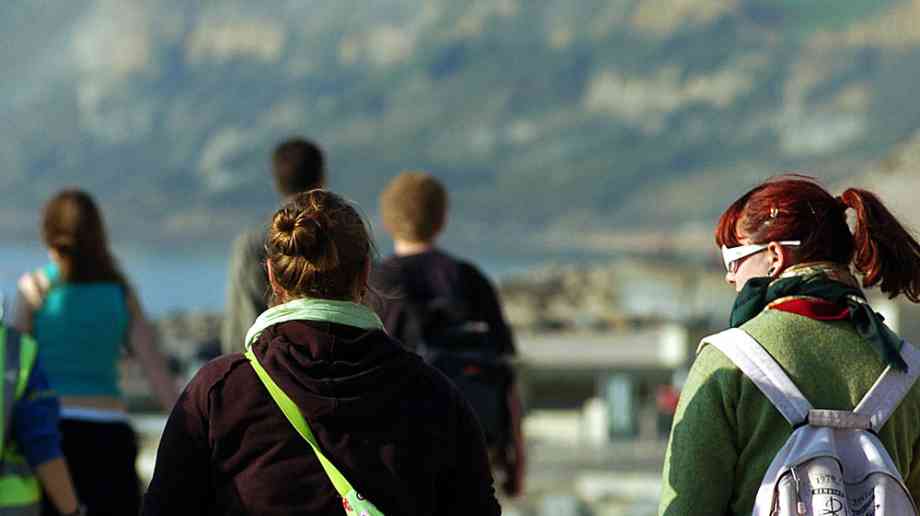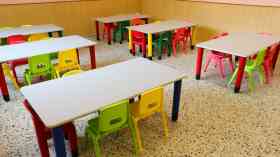
When is the best time for a school residential?
With the beginning of the school year upon us, the School Travel Forum writes about the value of school trips in the Autumn term
Your school might be one of the many that set aside a week towards the end of the school year specifically for school trips and residential experiences. While this can be a major benefit for timetabling and releasing staff, is it actually the best time to organise a residential experience?
School trips during the closing days of the academic year can be perceived by both students and teachers as a reward or a fun treat unconnected with learning. This influences the type of residential experience and can limit what you get out of the trip.
Running a residential trip at any time of year is beneficial – students will build relationships with each other, as a teacher you’ll developing a better and fuller understanding of your students – but for summer trips all this will happen just as you wave goodbye to the year group and they depart for the long summer holidays. There is no opportunity for you to fully capitalise and draw on this new insight and students are likely to revert to their usual friendship groups during the summer break.
Restricting residential experiences to the summer term also limits the kind of trips you are able to organise. Due to demand, it can be more difficult to secure the dates that you want and it can be more expensive.
Travelling during the autumn or spring terms can help you maximise the benefits and opportunities that these experiences offer and help save time and money.
Here are seven reasons to organise a school trip early in the school year:
Make your trip more affordable
There’s no getting around it, many families will need to think hard before committing to a school residential. It is important to ensure that all students have the chance to enjoy and benefit from these experiences, organising a trip during ‘less popular’ periods can help make sure your trips are accessible to as many pupils as possible.
Off-season residentials can mean cheaper transport and accommodation. If you are booking additional excursions as part of your trip, tickets for these may be cheaper too. An accredited school travel organiser, such as a member of the School Travel Forum, will help ensure you maximise the value of your trip and hunt out the most cost-effective solutions to meet your objectives.
Maximise your time
Destinations for many trips are likely to be less crowded during the autumn and spring. As well as making it easier for you to oversee and manage your group, queues for popular attractions will be shorter and you won’t need to allow quite as much travel time. This means you will have more time to spend on your chosen activities and it is more feasible to accommodate last-minute itinerary changes.
Help your students thrive
One of the most valuable benefits of a school trip is the insight it gives you into your students. For young people, being in a new environment, being given different responsibilities or opportunities may reveal previously hidden abilities and strengths. You’ll learn what makes them ‘tick’, how best to communicate with them, how they learn and take on board information.
You can use this knowledge when you return to the classroom – build it in to how you give direction or how you formulate or present tasks or activities – to ensure they thrive and achieve their potential.
Boost student confidence
According to research produced by Learning Away, the positive changes that arise during a school tour or trip are greatest the earlier the trip takes place in the academic year. 87 per cent of secondary school students said they felt more confident to step outside of their comfort zone and take on new educational challenges after an autumn trip with their school.
Capitalise on learning
Educational trips and tours bring learning to life, they make it real and relevant. They also help students build their observation skills and research shows that they retain information better and deepen their connection with the topic or subject. These trips also help to improve critical thinking.
By organising school trips during the autumn or spring terms, you have time to build on these experiences and learning through the remainder of the academic year.
Enjoy new learning opportunities
While the chances of good weather may be higher during in the summer term, there are many opportunities that either can’t take place then or just aren’t as impactful.
A number of experiences are only possible during the autumn and spring term - Skiing, and visits to Christmas markets, for example. These trips have a lot to offer young people, such as challenge, independence, the chance to practice language skills in a less formal environment, and so on.
Other experiences, such as night hikes, stargazing and spotting nocturnal creatures, are much easier to facilitate and are more impactful from October to March.
Capture the excitement of a new year
The start of a new academic year is full of excitement and eagerness yet there can also be summer-withdrawal symptoms. A trip early in the autumn term can capitalise on this energy and overcome nerves or hesitation about being ‘back at school’. It can help students to get reacquainted again or forge new friendships and can build morale. It can set the scene and tone for the year ahead.
Jon Clarke, shadow head teacher at Walsall Academy, has organised and led over 100 school tours and trips. He favours holding residentials in the autumn or winter due to the added benefits it offers students and how it helps to connect them with the subject: “For students learning a new subject, a school trip at this time of year can boost self-esteem and give them confidence. Running a trip or residential at the start of the academic year gives you more time to embed the learning and see the impact.”
Whenever and wherever you decide to go, it is important that young people have the opportunity to go on school trips. When looking at how the Covid pandemic had affected learning, Ofsted reported comments from school leaders on how the pandemic continued to impact the teaching of history and languages during 21/22, noting gaps in pupils’ knowledge from missing out on history school trips and fewer opportunities to speak and listen to other languages.
If organising a school trip or tour in addition to your usual workload feels overwhelming, do remember help is on hand. A specialist school travel or tour organiser will be able to advise you on the best time of year, the best location or destination and the best itinerary to meet your needs.
Further Information:
Latest News
19/12/2025 - 09:54
The Education Committee has expanded its ongoing inquiry into the early years sector to examine how safeguarding can be strengthened in early years settings.
18/12/2025 - 09:25
The UK will be rejoining the Erasmus programme in 2027, following a package of agreements with the EU.
17/12/2025 - 09:31
Ofqual has fined exam board Pearson more than £2 million in total for serious breaches in three separate cases between 2019 and 2023 which collectively affected tens of thousands of students.
16/12/2025 - 09:19
The average funding rates will increase by 4.3% for under 2s, and by almost 5% for 3-and-4-year-olds.
15/12/2025 - 10:30
Local colleges are set to receive £570 million in government funding to expand training facilities in areas such as construction and engineering.







